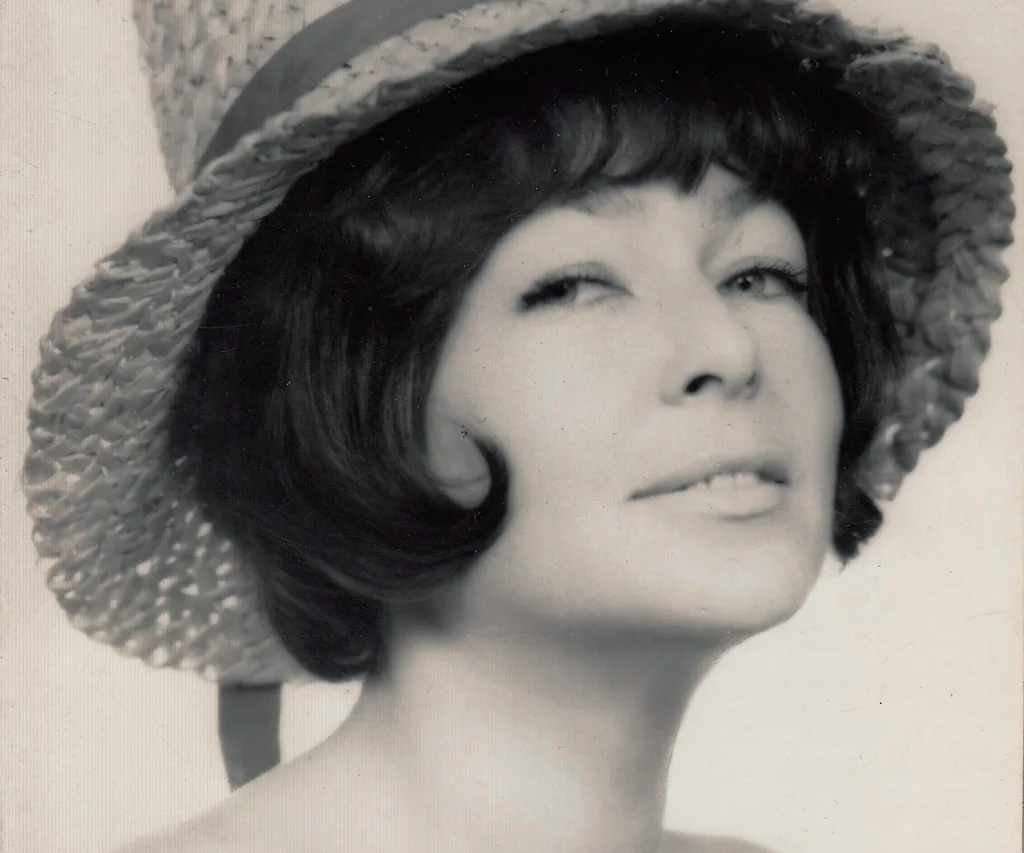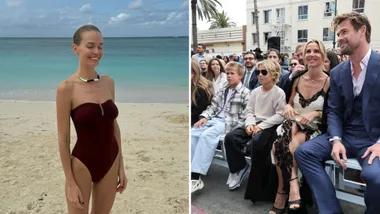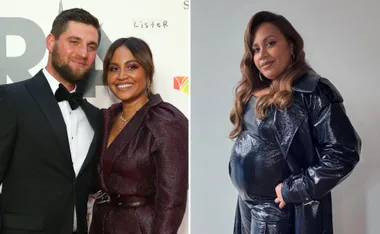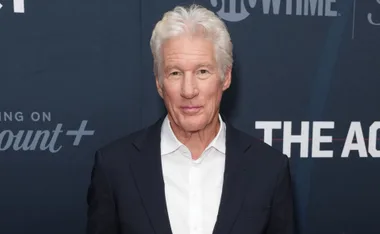It takes some chutzpah to accuse a close friend’s husband of hitting on you – even more when that husband also happens to be our country’s longest-serving Labor Prime Minister.
Yet chutzpah has never been lacking in 81-year-old Vera Wasowski and indeed helps to explain how the Holocaust survivor and Polish émigré came to find herself alone in a bedroom with Bob Hawke in the first place.
It was after one of her parties in Melbourne’s trendy St Kilda in the late 1970s, maybe the early 1980s – the parties have all blurred into each other.
Vera, who had fled a rising tide of anti-Semitism in Poland with her husband and young son two decades earlier, had been told by fellow Poles that she would need to work 16-hour days in a milk bar to make it in her adopted country.
“But I thought, ‘Bugger that!’,” she tells The Weekly and instead had wangled her way into a job at the Australian Broadcasting Corporation, first as a make-up artist, then as a researcher and field producer at This Day Tonight.
The trailblazing current affairs show had given her an entrée into the upper echelons of Australia’s political, media and artistic circles, and she was now mixing with everyone from the Hawkes to famed cartoonist Michael Leunig, to ABC heavyweight Kerry O’Brien, to prominent French-Australian artist Mirka Mora.
So did Vera, as the rumour mill suggests, succumb to Bob’s charms?
“No, no. Never,” she tells The Weekly, emphatically. And then, as if by way of explanation, “I don’t f*** men in singlets.”
If you find it shocking to hear an octogenarian use the F-word, best you stop reading now. Vera – whose life story is set to scandalise middle-class Australia (much to her delight, one suspects) – uses it as a fundamental building block of her conversation. In fact, in some sentences, spoken in her clogged, guttural Polish accent, it is the one word I am certain I understand.
An example: Vera, until recently a heavy smoker, tells me that doctors have just discovered three small spots on her lung. Is she concerned? “No. I am f***ing 81.”
We are sitting in the living room of her townhouse in a retirement village just outside of Byron Bay, NSW, which has been home to Vera for the past 13 years. Like her rich and varied life, there is an impression of colour and profusion: walls covered in paintings (many by Mirka), striking statues, kaleidoscopic flags and shelves groaning with books. Vera is unabashed about being an intellectual snob.

“People in the hospital, they ask me, ‘Do you have any allergies?’ And I always reply, ‘Yes, I do. I have an allergy to stupidity.’ I hate stupid people.”
She has also given fair warning that she will poison the tea of anyone who comes to her house and comments on the abundance of books, “as if books are a strange and rare phenomenon”.
Fittingly then, the reason I am here with Vera today is to talk about a book – specifically, her new book, Vera: My Story, which charts her rise from the Lvov Jewish ghetto in Poland (where she watched her beloved father commit suicide and her mother surrender to sexual blackmail to ensure their survival), to a bohemian student life in Stalinist Warsaw, to an avant-garde adult existence in Melbourne. In the biography, Vera is more coy about both her exchange with Bob Hawke and the reason she turned him down when, she freely admits, she greeted plenty of other suitors with open arms.
“I say to Bob, ‘Go home’,” she writes.
“He says, ‘Really?’
‘Really.’
“Sure you could sleep with Bob if you liked; many did. Yet if you met Hazel first, you had the chance to choose a big heart, a woman who delighted in the lovely things of the world, a woman of courage, a woman loyal in friendships – and [in my view] you chose Hazel if you had any brains at all, any heart at all.”
Vera makes it clear that, for her, there was never a contest: she picked Team Hazel and their close friendship endured until the death of the former PM’s wife in May 2013. Vera helped Hazel through the “torment” of her marriage to Bob and was there when Hazel’s daughter Rosslyn threw her a Liberation Party on the very day that Bob married his long-term lover Blanche D’Alpuget.
“It was wonderful, wonderful. People like Thomas Keneally and others were coming from the wedding straight to the Liberation Party,” Vera says, laughing.
Likewise, Hazel was there for Vera when her beloved husband, Jan, with whom she had a sexless and famously open marriage, succumbed to alcoholism.
“Hazel has what might almost be called a genius for avoiding platitudes,” Vera writes in her book. “Often she says nothing, but there is a universe of empathy in her eyes. And love. How many people understood this about Hazel, that if she loved you, she gave you everything she had, with no economy of feeling.”
It was this deep capacity for love that tied Hazel to Bob, Vera believes, even as he worked hard, played hard and drank hard.
“She was loving him unconditionally and therefore she was willing to put up with whatever was happening,” she tells The Weekly. “She just loved him. I know of only two women who have had only one man in their lives – and Hazel was one of them. She never left Bob because she didn’t want to leave.”

In her book, Vera lauds the strength of character that allowed Hazel to keep everything under control “when I am aware of the currents beneath the surface that can wrench her about”.
So their marriage – and Bob’s philandering – caused her much anguish, I ask?
“Oh, absolutely. Absolutely.”
If ever anyone were qualified to recognise anguish, it is Vera. She was just seven when German soldiers marched her family into the Lvov Jewish ghetto in Poland, where she witnessed such horrors as a five-year-old boy’s head being smashed against a stone bollard. Her grandfather was summarily executed when he refused a German order to leave the ghetto. She watched her beloved father take his own life after her mother began a sexual relationship with Vera’s uncle in return for concealment outside the ghetto. She looked on as her “brilliant” second husband, Jan, succumbed to alcoholism. And her only son, Marek, died tragically in a sauna almost nine years ago, at the age of 53, from suspected cardiac failure.
“You know, it’s not normal for a child to die before his parent, but, you know, there it was,” Vera says, shrugging.
Yet Vera has no sense of bitterness, no sense that life has dealt her a cruel hand.
“I don’t think I have had an unfair amount of suffering. I have had a lot, but there is nothing unfair about it. That’s life. Some people have a life where they don’t have any suffering. Others have a lot. That’s how it goes,” she says.
“I am not saying I am a wonderful, memorable person because I have suffered. That’s bullshit.”
Others beg to differ. Writer Robert Hillman admits he fell in love with Vera over the four years he worked on her biography – both as a character in the book and as a person. He describes her as extraordinary, eccentric, highly original, charismatic, unconventional, radiant, extremely bright, short-tempered and somewhat overpowering.
“I was overwhelmed,” he confesses to The Weekly. She was also not that easy to work with. “She would send emails along the lines of, ‘Robert, it’s two weeks since I last heard from you. Get off your f***ing arse’.”
Mirka Mora agrees that her old friend is “formidable” (whether in the French sense of tremendous or the English sense of awe-inspiring is not quite clear).
Kerry O’Brien, who has remained firm friends with Vera since they first worked together on This Day Tonight 42 years ago, says people have always been magnetised by her.
“She had a great capacity to persuade people to come on to television and bare their souls when, quite frankly, it wasn’t in their interests to bare their souls,” he says, laughing.
In her biography, Vera – who repeatedly references her gorgeous looks – writes that her colleagues on This Day Tonight used her as a kind of “sultry charmer” to lure talent onto the show. She seems quite chuffed by the idea, but Kerry insists she is underselling herself.

“What draws people to Vera? It’s a combination of that slightly outrageous individual style of hers plus her intellect,” he says. “She’s got a great mind and she is a very exotic character.”
Vera, like most fully rounded human beings, is an intriguing mix of strength and vulnerability.
“There is a deep, deep sorrow in her,” says Robert Hillman. “You can be deceived if you only spend a bit of time with her – there are so many smiles, so many jokes. But, deep down, there is a profound sadness, which goes back to what she saw in the ghetto in Lvov. She had to survive knowing what one group of people is capable of doing to another. That is very difficult to witness.”
Yet survive Vera has. Her friend, the opera director Barrie Kosky, once described her as a “cockroach”, she tells The Weekly – someone who would live through anything. She seems to relish the analogy. “I do have a very strong instinct of survival,” she says. “It gives me strength to be able to cope with whatever situation I am in, to survive. The rest is luck. I have no f***ing idea how we survived the Holocaust.
“But I am convinced that if you suffer, it’s a big lesson. It is a lesson to be compassionate to other people and to understand other people. It also teaches you what’s important and what’s bullshit. Important is understanding other people, contributing in life and inspiring other people,” she says. “Bullshit is the desire for material things, greed and small-mindedness.”
Vera: My Story by Vera Wasowski with Robert Hillman, published by Black Inc, is on sale from July 6.











